 Dr. K. Gujral
Dr. K. Gujral
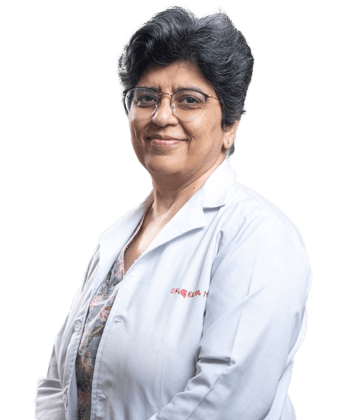 Dr. Geeta Mediratta
Dr. Geeta Mediratta
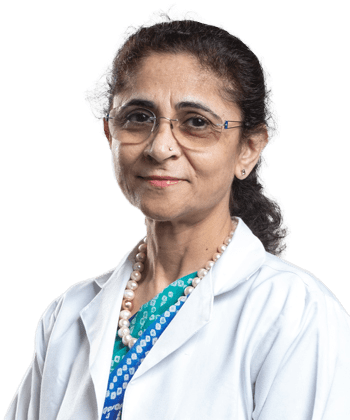 Dr. Chandra Mansukhani
Dr. Chandra Mansukhani
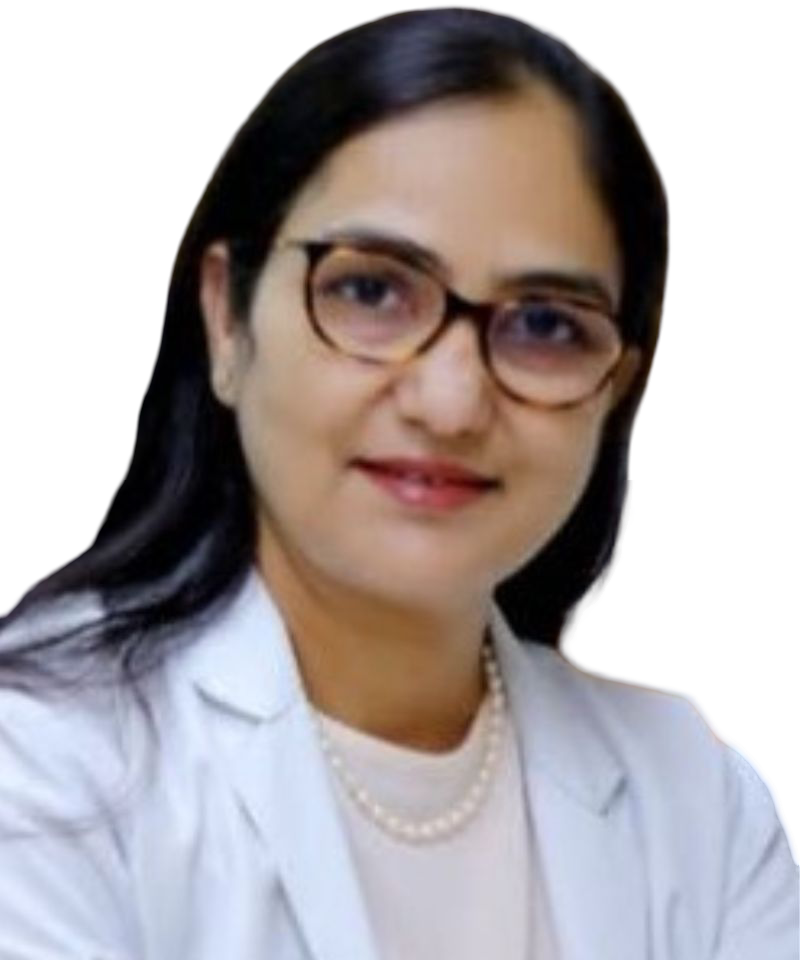 Dr. (Prof.) Mamta Dagar
Dr. (Prof.) Mamta Dagar
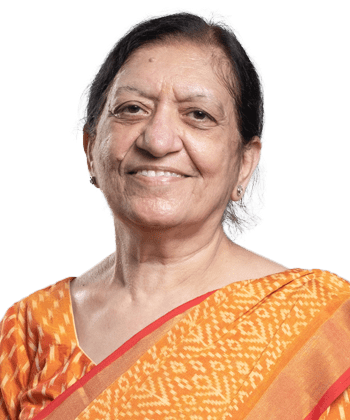 Dr. Harsha Khullar
Dr. Harsha Khullar
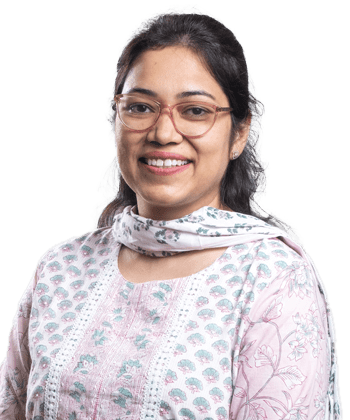 Dr. Sharmistha Garg
Dr. Sharmistha Garg
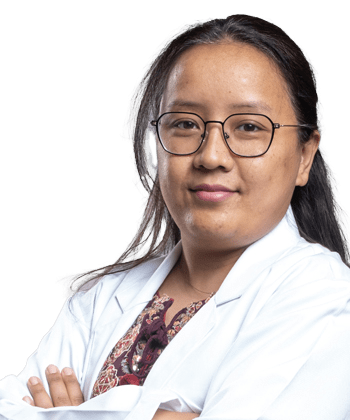 Dr. Renuka Brijwal
Dr. Renuka Brijwal
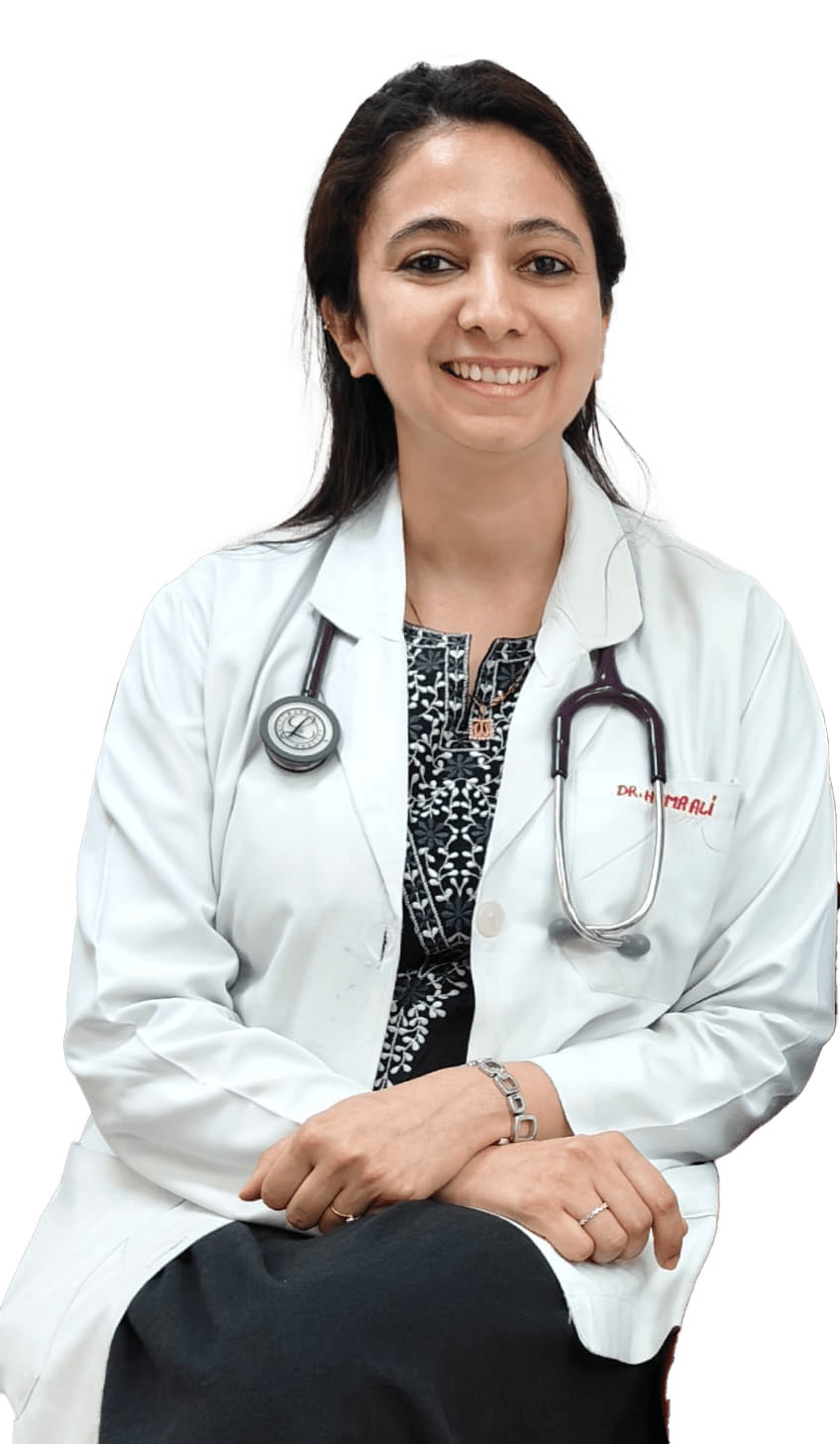 Dr. Huma Ali
Dr. Huma Ali
 Dr. Purvi Khandelwal
Dr. Purvi Khandelwal
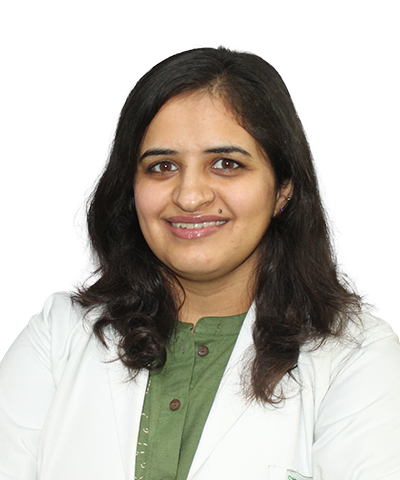 Dr. Ashmita Jawa
Dr. Ashmita Jawa
Institute of Obstetrics & Gynaecology Sir Ganga Ram Hospital
Established in 1954, the Institute of Obstetrics & Gynaecology at Sir Ganga Ram Hospital (SGRH) is a premier centre of excellence, offering comprehensive care for women at every stage of life. Our services span from intrauterine life, through adolescence and childbearing years, to peri- and postmenopausal care.
The Adolescent Gynaecology Clinic is run by the Institute of Obstetrics & Gynaecology and is dedicated to addressing the unique health needs of adolescent girls aged 10–19 years. The clinic offers free consultations in a supportive, confidential, and adolescent-friendly environment.
Adolescence is a critical transitional phase marked by rapid physical, psychological, and emotional changes. The health and well-being of adolescents play a vital role in shaping the future health of society. While a specific "Adolescent Census 2025" isn't planned, data from India's National Health Mission (NHM) and reports like "Children in India 2025" (MoSPI) show approximately 253 million adolescents (10-19 years), making up a significant portion of India's population, highlighting their crucial role for national development and emphasizing needs in health, education, and skills.
Early identification and timely management of health issues during this period can prevent long-term complications and promote healthy adulthood & nation.
The clinic aims to provide comprehensive and holistic healthcare services addressing all aspects of adolescent health, including:
Growth and development concerns during puberty
Menstrual disorders such as delayed puberty, irregular cycles, heavy menstrual bleeding, dysmenorrhoea, and amenorrhoea
Nutritional issues, especially anaemia and other micronutrient deficiencies
Immunisation counselling as per age-appropriate schedules
Mental health concerns, including anxiety, stress, depression, low self-esteem, and suicidal tendencies
Adolescent reproductive and sexual health education, with special focus on:
HIV/AIDS and other sexually transmitted diseases (STDs)
Safe sexual practices
Contraception and prevention of unintended pregnancy
The clinic functions in close collaboration with other specialists to ensure comprehensive care, including:
This multidisciplinary approach ensures both physical and psychosocial concerns are addressed effectively.
1. Who can attend the Adolescent Gynaecology Clinic?
Girls aged 10 to 19 years can attend the clinic for consultation and counselling.
2. Is parental presence required during the visit?
Younger adolescents are encouraged to come with a parent or guardian. Older adolescents may consult independently, and confidentiality is maintained as per ethical guidelines.
3. What menstrual problems are commonly addressed?
Irregular periods, painful periods, heavy bleeding, delayed onset of menstruation, and absence of periods are commonly evaluated.
4. Does the clinic provide counselling for mental health issues?
Yes. The clinic addresses stress, anxiety, depression, body image concerns, and emotional issues, with referrals to child psychologists when required.
5. Are sexual and reproductive health issues discussed confidentially?
Yes. All discussions regarding sexual health, contraception, and STDs are handled with sensitivity, privacy, and confidentiality.
6. Does the clinic provide treatment for anaemia?
Yes. Screening, dietary counselling, and appropriate treatment for anaemia and nutritional deficiencies are provided.
7. Are immunisations given at the clinic?
Immunisation counselling is provided, and eligible adolescents are guided regarding recommended vaccines such as HPV.
8. Is there any consultation fee?
No. The clinic provides free consultation for adolescents.
9. How can adolescents benefit from early consultation?
Early consultation helps in timely diagnosis, prevention of long-term health issues, improved mental well-being, and better reproductive health outcomes.
Days & Timings: Every Saturday in Room No – F-64 from 11:00am to12:00 noon.
Consultants: Dr. Chandra Mansukhani, Dr. Renuka Brijwal & Dr. Ashmita Jawa
The High-Risk Pregnancy Clinic is a designated clinical unit functioning under the Institute of Obstetrics and Gynecology, providing structured, protocol-based care to women with high-risk pregnancies. The clinic focuses on early risk stratification, continuous monitoring, and comprehensive management of pregnancies complicated by adverse obstetric history, pre-existing medical disorders, or complications arising during the current pregnancy.
The clinic delivers services in accordance with standard treatment guidelines and institutional SOPs, including:
Care is provided through a multidisciplinary team approach, involving Obstetrics, Fetal Medicine, Genetics, Neonatology, Anaesthesia, and other allied specialties as required. Clear referral pathways, escalation protocols, and interdepartmental coordination mechanisms are in place.
The clinic is supported by adequate infrastructure, trained medical and nursing manpower, and essential diagnostic and monitoring facilities. Regular clinical audits, outcome analysis, and documentation review are undertaken to ensure quality assurance, patient safety, and continuous improvement, in line with NABH, NMC, and DNB accreditation standards.
Comprehensive care is ensured by a collaborative team of Obstetrics, Fetal Medicine, Genetics, and Neonatology experts working together.
Days & Timings: Every Wednesday in Room No. F 66 from 11:00am-12:00 Noon
Consultants: Dr. K. Gujral, Dr. Chandra Mansukhani, Dr. Renuka Brijwal & Dr. Ashmita Jawa
What is a high-risk pregnancy?
A pregnancy is labelled as high risk when the probability of an advance outcome for the mother and fetus is increased over and above the baseline risk of that outcome in general and reference population.
Who should attend the High-Risk Clinic?
Women with medical disorders, previous pregnancy complications, multiple pregnancy, IVF conception, fetal growth or structural concerns, or pregnancy after 35 years.
Does this replace routine antenatal visits?
No. It provides specialist care in addition to regular antenatal check-ups.
What services are available?
Advanced ultrasound, Doppler studies, genetic counselling, prenatal screening, invasive diagnostics (CVS, amniocentesis), and fetal surveillance.
Are invasive tests safe?
Yes. When indicated, they are performed by experienced specialists using strict safety protocols.
How often will I need visits?
Follow-up is individualized based on your risk factors and pregnancy progress.
Can I have a normal delivery?
Yes. Many high-risk pregnancies have vaginal deliveries. Mode of delivery is decided on medical grounds.
Will my baby need NICU care?
Only if required. Advanced neonatal support is available on-site.
When should I seek urgent care?
Reduced fetal movements, bleeding, leaking, severe headache, abdominal pain, or breathlessness.
What is the clinic’s goal?
Early detection, coordinated care, and the best possible outcomes for mother and baby.
Midlife Women’s Health Clinic – Supporting Women Through Every Stage
Established in 1998 at Sir Ganga Ram Hospital, the Midlife Women’s Health Clinic (also known as the Matured Women Clinic) specialises in guiding women through perimenopause, menopause, and postmenopause, addressing the physical, emotional, and hormonal changes that affect quality of life.
Over 1,500 women have benefitted from our personalised care.
Our Focus
We provide tailored support for symptoms such as:
Key Services
A Holistic Approach
Our multidisciplinary care includes:
Expert clinicians offer evidence-based treatments, education, and compassionate support to help women thrive during midlife and beyond.
Days & Timings: Wednesday, 11:00am – 12:00pm, Room No F- 64
Consultants: Dr. Mamta Dagar & Dr. Purvi Khandelwal
1. What is Menopause?
Menopause is confirmed after 12 consecutive months without menstrual periods due to declining ovarian function. Globally, the average age is 51 years, but in India, it occurs earlier at 46.2-46.7 years. Perimenopause (transition phase) lasts 4-10 years with irregular periods; about 15% of Indian women experience premature menopause before age 40 (5% rural vs. 3% urban.
2. What are Common Symptoms?
Hot flashes and night sweats affect 61-80% of women globally and in India. Other frequent issues include musculoskeletal pain (84-89%), vaginal dryness, mood changes, fatigue, sleep disturbances, abdominal weight gain, plus long-term risks of osteoporosis and heart disease.
3. How is Menopause Diagnosed?
Diagnosis relies on symptoms, age, and menstrual history; FSH blood tests confirm if premature (under 40) or other causes suspected.
In India, awareness is 82.9%, but rural diagnosis lags; clinics use symptom questionnaires.
4. What Treatment Options Exist?
Menopausal hormone therapy (MHT/HRT) is first-line for severe symptoms if started within 10 years of menopause. In India: estrogen gels/oral tablets, testosterone patches available; transdermal patches limited; add progestin if uterus intact.
Non-hormonal options include SSRIs, gabapentin, lifestyle changes, and yoga.
5. Is MHT Safe?
Safe when initiated under 60/<10 years postmenopause: reduces mortality, fractures, diabetes, dementia; low stroke/clot risk in young users.
India usage 14-22%; benefits outweigh risks for most, with annual review.
6. What are Common MHT Side Effects and Risks for Indian Women?
7. What are Safer MHT Alternatives for Indian Women? (Latest IMS 2026 Guidelines)
Non-hormonal meds: SSRIs/SNRIs (50-60% hot flash reduction), gabapentin, fezolinetant (IMS Grade A for VMS).
Lifestyle: yoga/walking (30-50% relief), phytoestrogen diet (soy/flaxseeds), CBT/hypnosis (IMS Grade B).
Herbals: soy isoflavones, black cohosh (monitor liver; IMS cautious use).
IMS 2026 consensus: Prioritize non-hormonal for contraindications, combine therapies.
8. What Yoga Protocols Does the Indian Menopause Society Recommend?
IMS endorses integrated yoga (asanas + pranayama + meditation) daily 30-45 mins for symptom relief (Grade B).
Asanas (3-5 rounds, 30-60s holds): Dhanurasana, Bhujangasana, Naukasana, Sarvangasana, Shalabhasana, Shashankasana.[indianmenopausesociety +1]
Pranayama: Anulom Vilom, Bhramari (10-15 mins); paced breathing (6/min). Meditation: 10 mins gratitude focus. 8 weeks for results; trained instructor advised.
9. What are Lifestyle Tips?
Exercise (30 min/day), Mediterranean/anti-inflammatory diet, stress reduction (mindfulness), quit smoking/limit alcohol for bone/heart protection.
India: calcium-rich foods (ragi, sesame) for nutrition gaps
10. What Ongoing Health Screenings are Needed?
Cervical Cancer: HPV DNA test every 5 years (30-65 years); or Pap/VIA every 3 years; high-risk from 25. Continue postmenopause if abnormal.
Bone density (3-5% yearly loss), mammograms (to 75), Pap/ HPV DNA testing (to 65).
11. When Should I Visit the Clinic?
For severe/disruptive symptoms, postmenopausal bleeding, early menopause (<40), or treatment discussion.
Prepare symptom list/history.
The Uro-Gynaecology Clinic, established in 2008, provides specialised care for women with urinary and pelvic floor disorders. The clinic is conducted every Tuesday from 11:00 AM to 12:00 Noon in Room No. F-64 under Dr. Geeta Mediratta.
Uro-gynaecology is a rapidly advancing subspecialty of gynaecology that integrates medical, surgical, and rehabilitative treatments tailored for women with bladder, bowel & pelvic floor disorders.
Many women experience bladder, bowel and pelvic floor problems like leaking of urine and gas that significantly affect daily activities, comfort, and quality of life, yet often hesitate to seek help. This clinic offers a confidential, comprehensive, and compassionate approach to diagnosis and management.
The clinic manages conditions such as urinary tract infections, urinary and bowel /flatal incontinence, lower urinary tract symptoms (LUTS), pelvic organ prolapse, pelvic floor weakness, chronic pelvic pain, and sexual dysfunction related to pelvic floor disorders.
The clinic aims to restore comfort, confidence, and quality of life through evidence-based and patientcentered care.
1. What is Uro-Gynaecology?
Uro-gynaecology is a specialised branch of gynaecology that deals with urinary problems and pelvic floor disorders in women, such as urine leakage, prolapse, and bladder dysfunction.
2. Who should visit the Uro-Gynaecology Clinic?
Women experiencing urine leakage, frequent urination, difficulty passing urine, pelvic heaviness or bulge, recurrent urinary infections, chronic pelvic pain, or pain during intercourse should consider consultation.
3. Is urinary incontinence a normal part of ageing or childbirth?
No. Although common, urinary incontinence is not normal and is treatable with appropriate medical, physiotherapy, or surgical options.
4. What is a urodynamic test? Is it painful?
A urodynamic test evaluates how well the bladder and urethra store and release urine. It is a minimally uncomfortable procedure and is generally well tolerated.
5. What is JOGO Therapy?
JOGO Therapy is a non-invasive, advanced pelvic floor muscle rehabilitation technique that helps strengthen pelvic muscles without surgery. It is useful for urinary incontinence, pelvic organ prolapse, voiding problems, chronic pelvic pain, and vaginismus.
6. Will I need surgery for my condition?
Not always. Many conditions can be managed with lifestyle changes, medications, pelvic floor exercises, or JOGO Therapy. Surgery is advised only when necessary and after thorough evaluation.
7. Is treatment confidential?
Yes. All consultations and treatments are conducted with complete privacy and confidentiality.
8. Do I need a prior appointment?
Patients are advised to report during clinic hours. Appointment requirements may be guided by hospital policy.
Clinic Day & Time: Every Tuesday, 11:00 AM – 12:00 Noon
Venue: Room No. F-64
Consultant: Dr. Geeta Mediratta
This subspecialty in the Institute of Gynaecology & Obstetric was formed by our visionary founder Dr. S.K. Bhandari, 27 years back. Minimal access surgery in Gynaecology has revolutionized gynaecological surgical procedures dramatically. From big open scars on the abdomen to small keyhole surgeries, decreasing patient’s post-operative pain and enhancing early mobilisation and discharge from hospital. We offer a state of the art minimally invasive endoscopic management for a wide range of gynaecological procedures like hysterectomy, myomectomy, fertility enhancing procedure, operative hysteroscopies and gynaecological malignancies etc.
Our Mission: Is to convert open surgeries into minimally invasive wherever possible, to train all budding gynaecologists of our Institute of Obstetrics and Gynaecologists and others wanting to learn endoscopy by observing and assisting the Gynae Endoscopic surgeons. We offer Fellowships in the subspeciality of Gynae MAS.
Our Vision: We want every Gynaecologist to be trained in Endoscopy. To spread awareness among common public about the advancement in Hysteroscopic, Laparoscopic and Robotic assisted Laparoscopic Surgeries, we organize public awareness lectures, social media talks, Endoscopic workshops, CMEs, Webinars, and hands on training programmes.
Skill Centre: Sir Ganga Ram Hospital’s state of the art skill centre provides training on workstations with endotrainers, simulators, advanced Audio visual setups, mannequins etc. Our Senior gynae endoscopists take regular classes and hold advanced hands on certified training workshops for the post graduate students of our institute and other aspiring gynae endoscopists who enroll for our workshops.
Gynae Endoscopy Operation Theatres: We have 5state of the art Gynae Endoscopic operation theatres. Each MAS theatre has a Full High Definition Endovision system with 4 K and 3 D 4 K capabilities, 2 ceiling mounted adjustable monitors (separate for surgeons and assistants), high end operating tables, and expert anaesthesia setup.
Robotic Surgery: The hospital had acquired Robot; da Vinci System Si for robotic surgery in 2012. Consultants of the Institute; Dr Debasis Dutta, Dr. Kanika Jain, Dr. Chandra Mansukhani, Dr. Mala Srivastava, Dr. Mamta Dagar, & Dr. Punita Bhardwaj had undertaken training for robotic surgery. Various gynae surgeries have been performed successfully in the Institute so far on the system. Recently we have procured 2 new Robots; The Hugo RAS by Medtronics and the MISO ENDO400 by MERIL. They have dedicated OTs in SSRB and the new Executive building respectively and gynaecological benign and cancer surgeries are being performed on them now.
Training and Accreditation: Many surgeons from India and abroad have benefited from GRIPMER fellowships in Gynae Endoscopy from our institute. Our sub speciality offers clinical observerships also in which senior gynaecologists from other hospitals have enhanced their knowledge and learned tips and tricks in Gynae Endoscopy.
Academics: Our consultants in Gynae endoscopy; Dr. Debasis Dutta, Dr. Kanika Jain, Dr. Punita Bhardwaj and Dr. Ila Sharma are excellent teachers and keen enthusiasts in organising academic programmes to train budding gynaecologists. We have been holding positions in our Delhi and National level Gynae Societies and Gynae Endoscopy associations taking the name of Sir Ganga Ram Hospital to greater heights. Dr. Kanika Jain is at present the chairperson of Endoscopy Committee of AOGD. She has edited and published books on Gynae Endoscopy & contributed chapters at national level FOGSI & other Gynae text books. Our consultants and have many publications at National and International levels to their credit.
Endoscopy OPDs: Dedicated Gynae Endoscopy Charitable OPDs are held twice a week.
Consultants: Dr. Debasis Dutta, Dr. Kanika Jain, Dr. Ila Sharma: Saturday 11 am in F-64, Dr. Punita
Bhardwaj: Tuesday 11 am – 12 noon in R. No. F 66.
Q. What is key hole surgery?
A key hole surgery refers to laparoscopic a Robotic assisted laparoscopic surgery performed through small holes created on the abdomen by specialised surgeons trained in endoscopy. Thus avoiding a large abdominal cut given in open surgeries.
Q. Is a laparoscopic / Robotic surgery less painful than conventional open surgery?
Yes, minimal access surgeries are much less painful, have faster recovery, early mobilisation early discharge from hospital and earlier return to work as compared to conventional open surgeries.
Q. Can Gynae Cancer surgeries be performed Endoscopically ?
Gynae Endoscopy has a definite role in diagnosing and treating Gynae cancers but the management has to be individually based on the type of cancer.
Q. Can fertility enhancing, surgeries be performed endoscopically?
Yes, fertility enhancing surgeries should majorly be performed endoscopically ONLY and good results are obtained if performed by expert endoscopists. Surgeries like operative hysteroscopies (polypectomy, septal resection, synaechiolysis, tubal cannulation etc) and operative laparoscopies (myomectomy, tubal recanalization, adhesiolysis, ovarian cystectomies etc) help infertile couples conceive.
Q. How soon can a patient return to work after laparoscopic hysterectomy?
The recovery after laparoscopic hysterectomy is much faster and hence patient can return to work after 2- 3 days of surgery or within a week depending upon case to case.
The Gynae-Oncology Clinic offers advanced facilities for the early diagnosis and comprehensive management of gynecological malignancies. With a focus on genital tract cancers such as carcinoma cervix, uterus, ovaries, and others, the clinic provides state-of-the-art services to ensure the best possible outcomes for patients. Here are some key highlights of the clinic:
Early Diagnosis: The clinic places special emphasis on early detection through effective screening methods. Screening tests like PAP smear, HPV testing, and colposcopy are available to identify abnormalities and detect genital tract cancers at their earliest stages. Early diagnosis increases the chances of successful treatment and improved prognosis.
Expert Medical Team: The Gynae-Oncology Clinic is staffed with a highly experienced and specialized team of gynecological oncologists and healthcare professionals. They possess extensive knowledge and expertise in the field of gynecological cancers, ensuring that patients receive the highest standard of care throughout their treatment journey.
Comprehensive Treatment: The clinic offers a comprehensive range of treatment options for gynecological cancers. This includes radical surgeries, minimally invasive procedures, and advanced treatments for both early-stage and advanced cancers. The treatment plan is tailored to the individual needs of each patient, considering factors such as cancer type, stage, overall health, and patient preferences.
Multidisciplinary Approach: The clinic follows a multidisciplinary approach to cancer care. The medical team collaborates with other specialists, including radiation oncologists, medical oncologists, pathologists, radiologists, and support staff, to provide integrated and personalized treatment plans. This approach ensures comprehensive care and considers the overall well-being of the patient.
Advanced Technologies: The Gynae-Oncology Clinic is equipped with state-of-the-art facilities and advanced technologies to support accurate diagnosis and precise treatment. This may include advanced imaging techniques, surgical instruments, robotic-assisted surgery, and radiation therapy equipment. These technologies aid in delivering effective and targeted treatment while minimizing the impact on surrounding healthy tissues.
Management of Advanced and Recurrent Cancers: The clinic specializes in the management of advanced and recurrent gynecological cancers. The medical team is experienced in handling complex cases and offers innovative treatment options to improve outcomes and quality of life for patients facing these challenges.
The Gynae-Oncology Clinic is committed to providing the highest level of care for patients with gynecological cancers. Through early detection, comprehensive treatment options, advanced technologies, and a multidisciplinary approach, the clinic aims to improve patient outcomes and enhance their overall quality of life.
Department of Gynecological Oncology
Sir Ganga Ram Cancer Centre
Sir Ganga Ram Hospital
Rajinder Nagar, Delhi
Subject: Invitation for One-Year Fellowship in Gynecological Oncology
1. Introduction
We are pleased to invite applications for our ‘One-Year Fellowship Program in Gynecological Oncology.’ This fellowship is designed for postgraduate doctors seeking to enhance their clinical, surgical, and research expertise in the management of gynecological cancers at one of the India’s leading tertiary care centers.
2. Program Highlights
During the fellowship, participants will:
Participate in the multidisciplinary management of patients with ovarian, endometrial, cervical, vulvar, and gestational trophoblastic neoplasms
Assist and observe in radical and cytoreductive surgeries, minimally invasive procedures including robotic surgeries, and preventive oncology like colposcopy
Participate in outpatient clinics, inpatient services, radiological discussions, and tumor boards
Attend weekly academic activities, including Clinical Rounds, Case Discussions, Journal Clubs, and Multidisciplinary Tumor Boards
Receive exposure to onco-pathology, radiotherapy planning, and palliative care
Structured mentorship and opportunities for presentation and publication
3. Benefits for Fellows
Clinical Proficiency: Hands-on exposure to comprehensive gynecological oncology care across surgical, medical, and radiation domains.
Academic and Research Development: Participation in ongoing clinical studies and academic meetings; opportunity to present research at national and international forums
Professional Mentorship: Guided learning from experienced gynecologic oncologists alongside multidisciplinary collaboration with radiologists, pathologists, medical and radiation oncologists
Recognition: On successful completion, fellows will receive an official Certificate of Fellowship in Gynecological Oncology from GRIPMER, Sir Ganga Ram Hospital
4. Application Process
Interested candidates should submit the following:
Updated Curriculum Vitae (CV)
Statement of Purpose outlining career goals in gynecological oncology
5. Eligibility Criteria
Postgraduate degree in Obstetrics and Gynecology (MD/MS/DNB or equivalent)
Demonstrated interest in oncology or surgical subspecialties
Please note: This is a non-remunerative fellowship. Fellows will participate in supervised clinical and academic activities but will not engage in independent patient management or prescribing
Accommodation is not provided by the hospital or department
International candidates to be selected as per norms and regulation as per NMC and GRIPMER
6. Contact Information
Department of Gynecological Oncology
5th floor, E block, Sir Ganga Ram Hospital, Rajinder Nagar, Delhi-110060
Email: malasrivastava2001@yahoo.co.in; dr.modirahul@gmail.com
Phone: +91-8888315416
We look forward to welcoming you to this enriching fellowship and supporting your professional growth in the evolving field of Gynecological Oncology.
With warm regards,
Dr. Mala Srivastava, Director, Department of Gynecological Oncology
Dr. Rahul D. Modi, Co-Director, Department of Gynecological Oncology